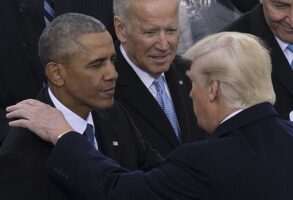Published July 9, 2014
During an engaging, wide-ranging interview with Katie Couric at the Aspen Ideas Festival, New York Times columnist David Brooks was asked this: “How do you feel about the Tea Party? The notion of compromise is a dirty word more than ever on Capitol Hill. So how do you see us getting us to a place where there can be a moderate middle? Do you think it’s possible to return to those days?” To which Brooks replied this way:
Let me quibble with one phrase in your question, which would be “moderate middle.” So I’m a moderate but I’m not in the middle. And what I mean by that, I think being moderate is seeing politics as a competition between partial truths. And like in this era we have competition between security and freedom, between achievement and equality, between mobility and cohesion. And both sides have a piece of the truth. And often you want to be radical on both ends and try to balance. So it’s all about balance. So you can really value things that are on each end as long as you try to balance these opposing things and as long as you understand that politics is a messy, slow … boring through hard boards—it’s just messy and slow and you take one step at a time.
Brooks went on to say this:
My problem with the Tea Party is partly what they believe, but partly it’s just their [methods]—they’re anti-political. I believe in politics, that you pass a piece of legislation and you get half a loaf and you make a slow step and you make a compromise and you try to go a little forward every day. Politics is not, it’s not show business. It’s just messy compromises because you’re always caught in contradictions and filled with paradoxes. And my problem with the Tea Party is they don’t like politics. They want it to be pure, and they often punish people who they call RINOs—who are Republican in Name Only—because they’re not pure. But I think impurity is what leaders do. They take impurity upon themselves. They take the sins of the situation on themselves. They take the complexity of the situation on themselves and they try to muddle through. And so I think people who are unwilling to muddle through are not being political; they’re being self-indulgent. And so I have a problem with that style of politics.
I would add some elaborations to what David says, ones I think he might agree with, such as: No one in politics sees the truth in full, but some people are within much closer striking distance than others. And the Tea Party movement has produced some of the most impressive politicians now on the right, including Marco Rubio (who defeated Charlie Crist in their primary) and Mike Lee (who defeated Bob Bennett in their primary).
With that said, Brooks is zeroing in on something quite important, which is that politics is an inherently messy business. Moreover, the American founders—who developed the concepts of checks and balances, separation of powers, and all the rest—wanted politics to be messy. That is, our constitutional order requires give and take, adaptation and collaboration, the balancing of competing interests, and compromise itself. As Jonathan Rauch has written in National Affairs, “In our constitutional system, compromise is not merely a necessary evil but a positive good: an indispensable source of political discipline, competition, and stability—which are all conservative values.”
Too often these days, zealous people who are in a hurry don’t appreciate that the process and methods of politics—the “messy,” muddling through side of politics—is a moral achievement of sorts. But this, too, is only part of the story.
The other part of the story is that justice is often advanced by people who are seized with a moral vision. They don’t much care about the prosaic side of governing; they simply want society to be better, more decent, and more respectful of human dignity. So yes, it’s important not to make the perfect the enemy of the good. But it’s also the case that politics requires us to strive for certain (unattainable) ideals.
There’s a distinction, then, between motivating ideals and the methods and processes of politics. Think of Martin Luther King’s dream and Lyndon Johnson’s civil-rights legislation. Or think of Lincoln, who was both the greatest exponent of principles of the Declaration of Independence in American history and a supremely great politician.
What happens all too often in our politics is that people who are drawn to one tend to look with disdain on those who are drawn to the other. What we need, I think, is greater recognition that both are necessary, that each one alone is insufficient. Visionaries have to find a way to give their vision concrete expression, which requires deal-making, compromise, and accepting something less than the ideal. Legislators need to govern with some commitment to philosophical and moral ideals; otherwise, they’re just passing laws and cutting deals for their own sake.
What David Brooks is saying, I think—and where I agree with him—is that some recalibration needs to occur in some quarters on the right, away from those seeking purification and excommunication (RINO-hunters) and toward a fuller, more authentic conservatism. Call it the conservatism of the founders.
Peter Wehner is a senior fellow at the Ethics and Public Policy Center.





